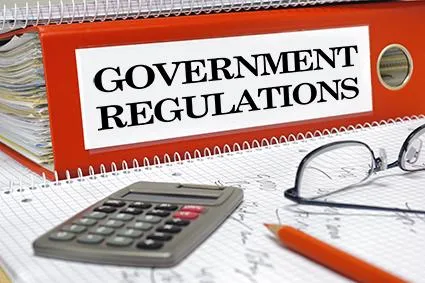In chapter 7 of The Seen, the Unseen, and the Unrealized, Dr. Bylund depicted government regulation as a restrictive force on businesses meant to direct their production into a different fashion for a specific purpose. He explained how a government official making a seemingly simple restriction on one detail in the economy can affect every part of the whole system, which reinforced the idea of the interconnectedness of decentralized production in the market.
This definition of regulation through policy gives it more of a negative connotation, but I think that some regulations put in place by the government are good. Take minimum wage as an example. Minimum wage is regulation that prohibits any business from paying their employees less than a specified wage, which is important because it prevents businesses from badly exploiting their employees. One might argue against minimum wage by saying that if an employee does not like their wage, then they can simply go work at a different company that gives out better wages. The issue with this argument is that there would be a huge number of businesses attempting to undercut their employees, so there would be very few jobs with good wages available. Also, there are hardly any guarantees when searching for a new job.
The reason Dr. Bylund gave regulation more of a negative connotation, I think, is that, unless it is planned and calculated carefully, a regulation that raises the cost of or prohibits a certain form of production can prevent the creation of specific values and remove possibilities for consumers to receive what they want and can even put certain groups out of business. I agree with this for the most part, but if the purpose behind a regulation is important enough, then is the loss of value and consumer satisfaction worthwhile?
I think it could be that government intervention in the market via regulation is necessary only when businesses are not changing for the better on their own. If the minimum wage requirement were removed, then it would only make sense for businesses to undercut their employees as much as possible without incentivizing them to leave. The minimum wage regulation is necessary to prevent such easy exploitation. On the other hand, an example of regulation being unnecessary, I think, was regulation regarding shutdowns at the start of the COVID-19 pandemic. At the beginning of March of 2020, many businesses were already taking precautions against the pandemic before the government put COVID-19 policies into place in mid-March of 2020 (CATO Institute). By forcefully shutting down businesses deemed unessential, the government forced many people into unemployment (with added benefits, to their merit) when these "unessential" businesses could have adjusted according to their customers' desire for safety from the pandemic or disbanded all on their own.
The one issue with letting businesses deal with a pandemic naturally, however, is that some businesses will have no care for the infection of their consumers. That is the one point on which I could agree with forceful restrictions that could forcefully reduce COVID-19 transmissions. But I feel this use of force lasted too long and did more harm than good to the market, especially to small businesses.
I conclude that the only regulations that should be enforced by the government are the ones that can only benefit production and help consumers receive their wants, such as minimum wage.
